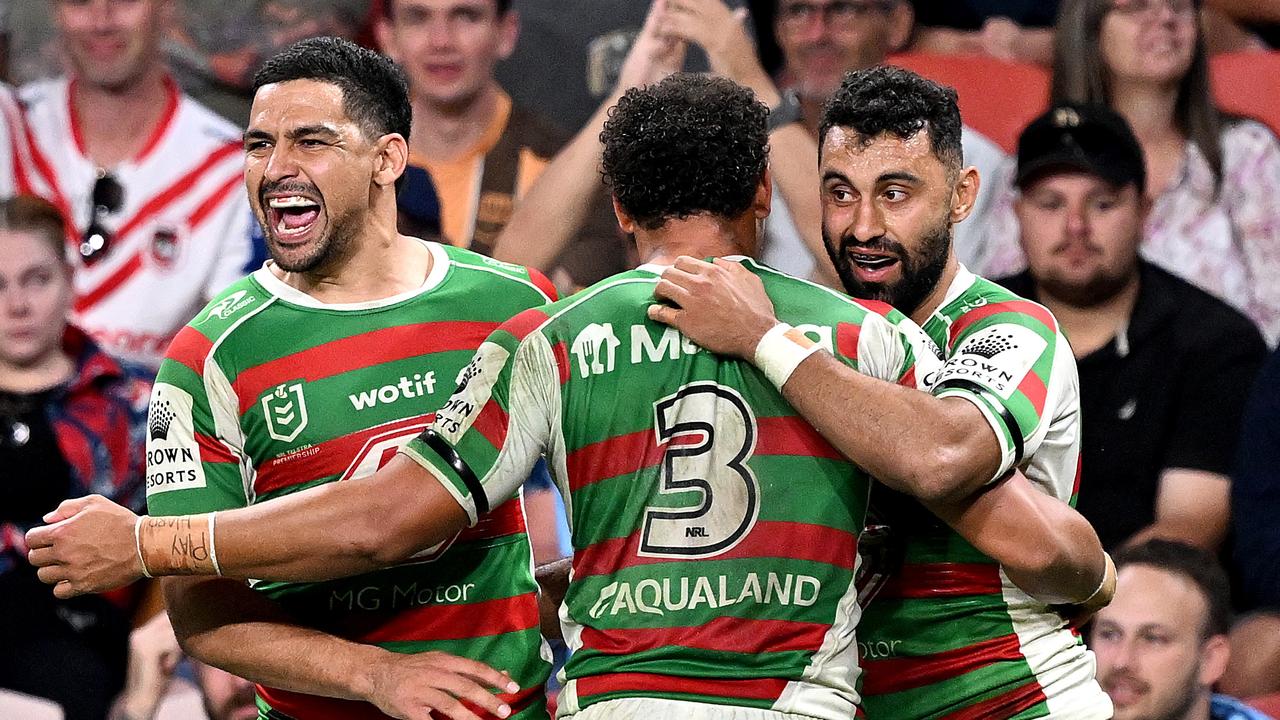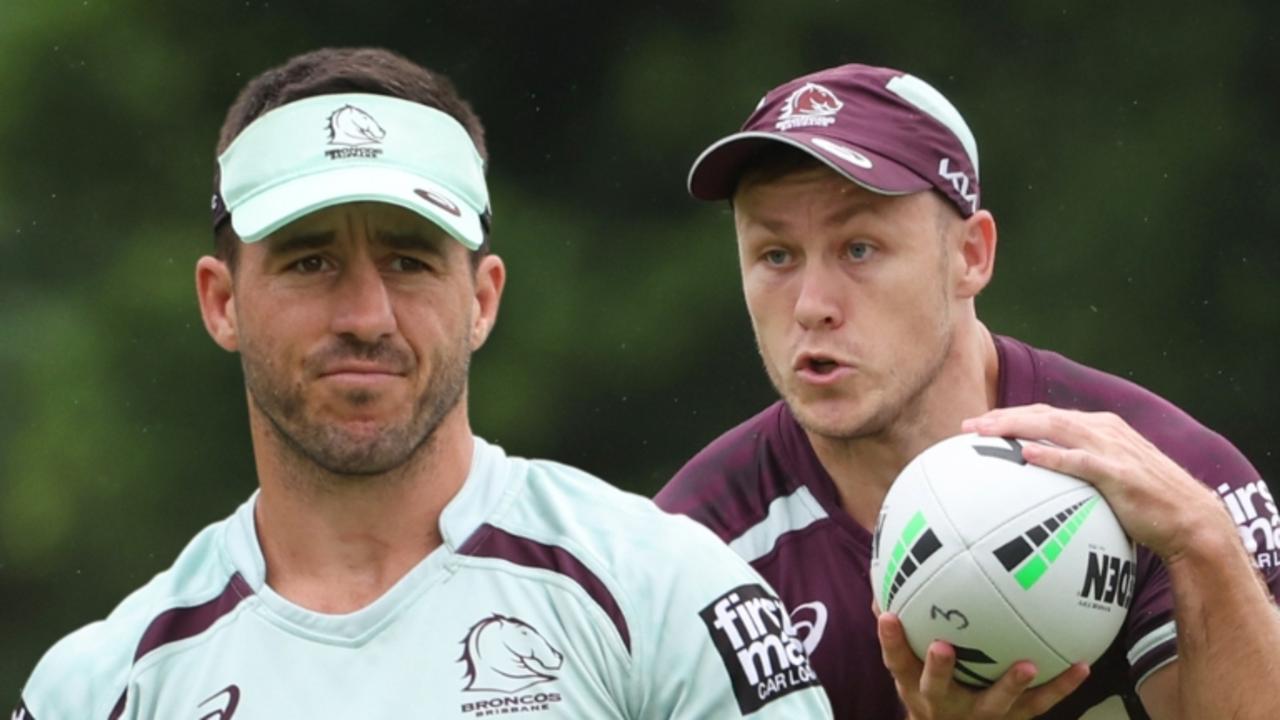NRL 2021: Phil Gould’s controversial concussion changes slammed
Channel Nine commentator Phil Gould has angered many with his recent comments around concussion in rugby league.
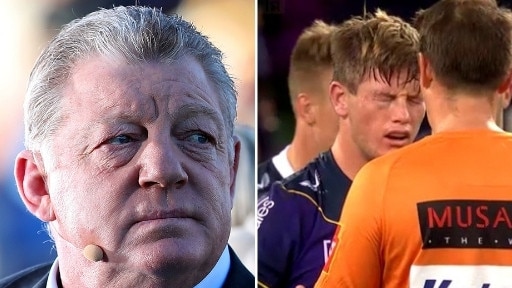
NRL
Don't miss out on the headlines from NRL. Followed categories will be added to My News.
Australia’s top brain injury expert has rubbished claims by Channel 9 commentator Phil Gould that the NRL is overreacting to the concussion issue, warning that a player risks death if left on the field after a head knock.
Gould angered NRL bosses with his comments around last weekend’s knockout of rising Melbourne Storm superstar Harry Grant, who was allowed to stay on the field despite lying motionless on the ground for six seconds after a sickening head clash.
“This bloke didn’t need to be replaced,” Gould said on Channel 9, “blokes don’t need a HIA examination.”
Watch The 2021 NRL Telstra Premiership Live & On-Demand with No Ad-Breaks During Play. New to Kayo? Try 14-Days Free Now >
Neurologist Professor Chris Levi insists a second knock could have led to an irreversible brain injury – or death.
“Second impact syndrome caused by very rapid developing brain swelling that can develop over minutes after a second head knock,” Professor Levi said, “The swelling can result in an irreversible brain injury and the condition can carry a mortality rate of up to 50%.
“The medical rationale for early identification and prompt diagnosis of concussion is the fear of a very uncommon but potentially very serious consequence of a second concussion occurring before the brain has fully recovered from the first event.”

Gould caused shockwaves across the game with his comments.
He declared the NRL had over-reacted because of litigation threats and suggested players should simply be asked to sign a legal waiver before playing NRL.
“Sign a paper which says ‘I understand the risks of playing this game’,” he said.
But his comments on Grant’s shocking head knock created the most furore.
NRL rules state players lying motionless for two seconds or more have to come off for an assessment.
“Why did Harry Grant have to come off?,” Gould said, “Harry Grant gets up from his little thing, he scores a try, he catches a short kick-off, he makes a break, he’s diligently doing all his dummy-half work and responding to all the calls right.
“Then seven minutes later they bring him off. Obviously this bloke didn’t need to be replaced. Blokes don’t need a HIA examination. We’re too sensitive on the field about who comes off the field.
“We get the trainers to run a test on the field. They do this silly test. They pass it then three minutes later the doctor gets nervous and says you’ve got to bring him off.
“The doctor will do a HIA, he’ll pass that, and then the doctor won’t let him come back. We’re totally over sensitive to all of this.”
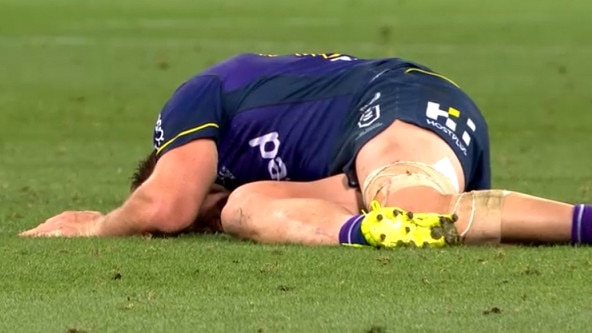
Melbourne Storm football general manager Frank Ponissi admitted Grant was replaced after seven more minutes because his condition deteriorated
Gould continued by criticising medical experts and lawyers.
“If doctors and lawyers are so worried about it, give them their way and call it off,” Gould said. “Let’s not play any sport where you can get hurt.
“Doctors and lawyers will end the game if the NRL keeps bowing down to them. All these people screaming HIAs … I honestly find it ridiculous.”
Professor Levi has treated a number of high profile NRL players including Roosters skipper Boyd Cordner and carried out concussion research for more than a decade.
“Rapid medical assessment and removal from play (if concussion is diagnosed) provides players with the best medical care in terms of minimising risk of what is a rare but potentially catastrophic outcome of a second concussion.” he said.
“From the medical perspective, adverse events with very serious consequences such as SIS (second impact syndrome) even if low risk, require policies and protocols that err on the side of being conservative.”
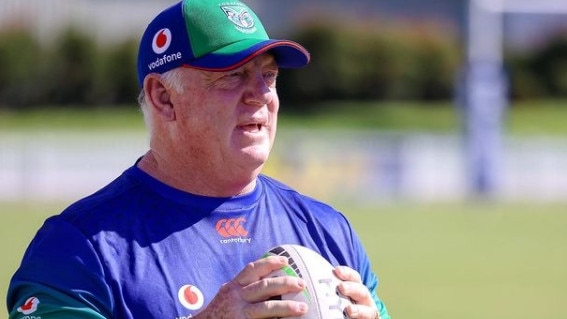
Professor Levi fully supports the NRL’s cautious approach.
“Longer term brain and mental health consequences of concussion have been recognised for over 100 years,” he said.
“The increasing understanding of concussion as one of a number of risk factors for illnesses like depression, dementia and the condition chronic traumatic encephalopathy (CTE) is an increasingly important consideration for policy makers responsible for player welfare and workplace safety.
“Prompt and accurate identification of concussion and avoidance of situations where players are exposed to repeated concussions is absolutely sensible and appropriate.”
Gould, who played in the 70’s and 80’s when the collisions were not as brutal, even criticised the sending off of Canterbury’s Jack Hetherington for the shocking high tackle on Valentine Holmes.
“I don’t think it was a send-off,” he said, “No-one was hurt. It was a reflex action.
“I don’t see the sense of people being sent off.
“I don’t think people need to sit out football to learn their lesson.”


